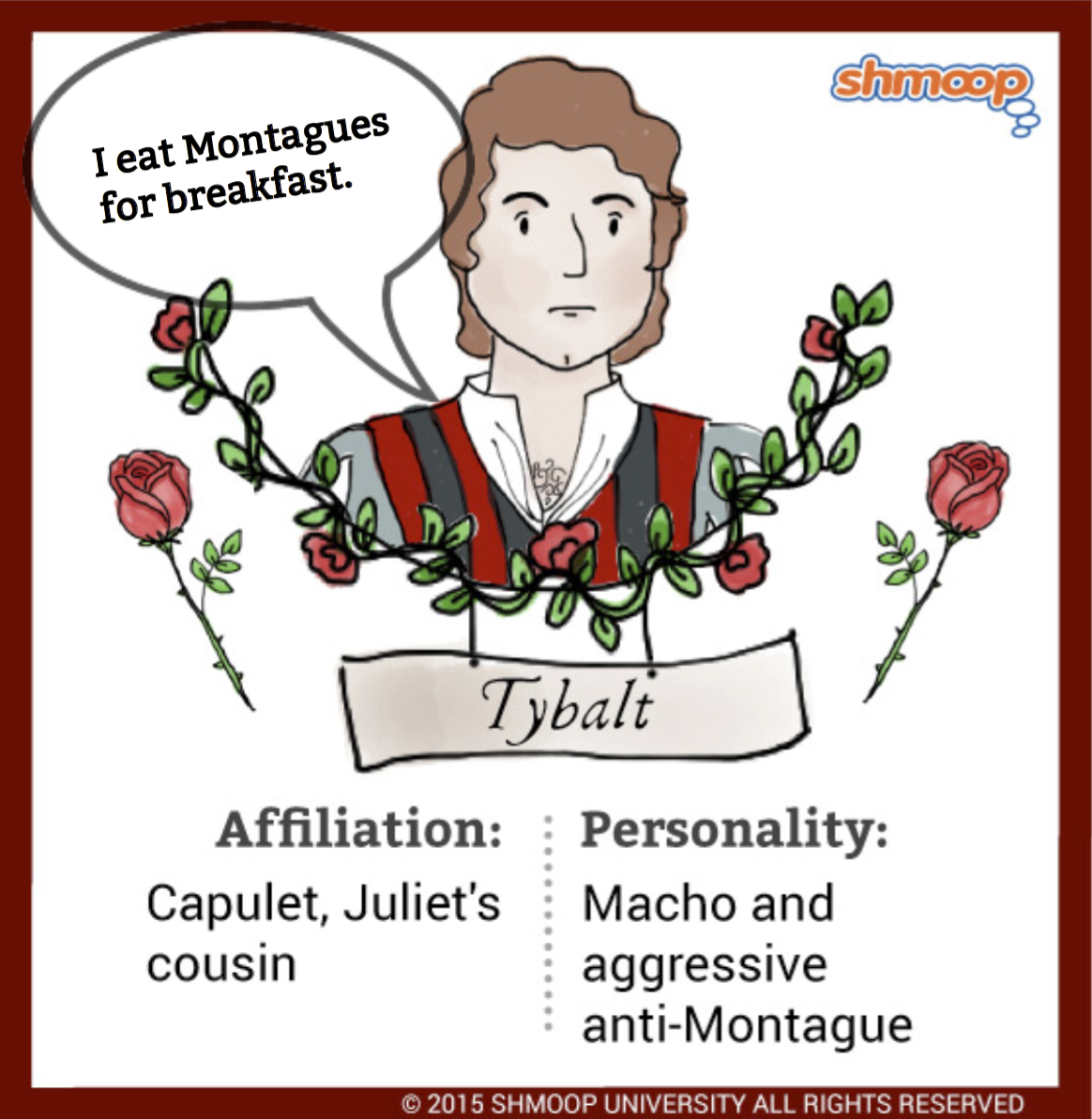Character Analysis

(Click the character infographic to download.)
Tybalt is Juliet's cousin, i.e. a Capulet. After he kills Romeo's BFF, Mercutio, in a street brawl, Romeo mortally stabs him, which causes Romeo to be banished from Verona.
You don't have to look far for Tybalt's motivation: testosterone. He's not deep, but he sure is handy with a sword. Mercutio, who hates Tybalt, gives him the "catty" nickname the "Prince of Cats," and it totally fits. While Romeo can sometimes remind you of a bouncy and overeager puppy, Tybalt tends to stalk around proudly attacking anyone who strokes his fur wrong. We get just a hint of that when his uncle Capulet prevents him from beating up Romeo for crashing the Capulet's masked ball, and he promises to bash in Romeo's skull at a later date: "I will withdraw, but this intrusion shall, / Now seeming sweet, convert to bitt'rest gall" (1.5.102-103).
Notice that Tybalt likes to speak in rhymed couplets ("shall" and "gall" rhyme here), which could sound kind of ridiculous—but here just sound menacing. Aside from the vendetta between the Capulets and Montagues, there's no real explanation for Tybalt's aggressive behavior. It seems possible that he's eager to fight because he wants to defend his reputation as the toughest of the Capulets. It's also likely that Tybalt just likes to fight, which brings us to our next point: If there's a personification of hate in the play, it's Tybalt.
Think, for example, of the fact that while super macho Tybalt is storming around the Capulet ball threatening to beat Romeo to a pulp (just for being a Montague), Romeo and Juliet are a few feet away being all sappy sweet and professing their love for each other (1.5). Looks like "hate" and "love" may not be so different from each other after all.
Tybalt's Timeline